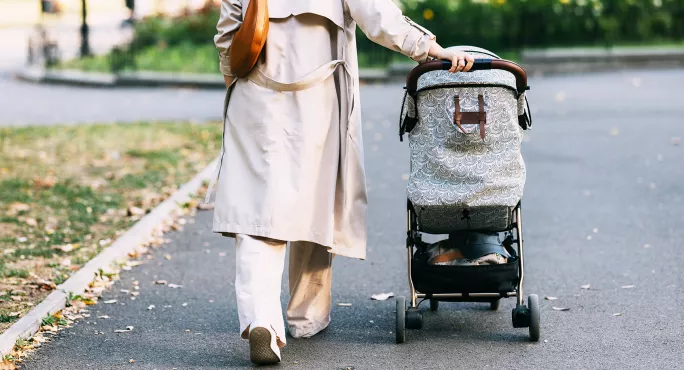Concern over number of children arriving at school ‘still in nappies’

Concerns have been raised about the number of children arriving at school still wearing nappies, using buggies and unable to communicate properly with their classmates.
Former children’s commissioner Anne Longfield warned that too many young children are being “held back”, as they are not receiving the support needed to boost their “school readiness”.
The Covid-19 pandemic exacerbated many early years developmental problems, especially for vulnerable children, according to the report from Ms Longfield’s Centre for Young Lives think tank and the Child of the North institute.
It suggested that about a third of children were not considered to be “school ready” in 2022-23.
The report - which warns of a “crisis” in preschool provision - calls on the government to implement positive parenting programmes and home visits by trained professionals to increase support to families.
Reception children ‘still using buggies’
Ms Longfield, executive chair of the Centre for Young Lives, said: “I have heard many concerning experiences from school staff about children arriving at Reception wearing nappies, still using buggies, and unable to communicate at the expected level or to socialise with other children.
“Some of these children have developmental problems, struggle with speech and behaviour, and can require significant extra attention and support from already overstretched schools.”
The report warned that a “widened” language gap between children from more and less advantaged communities since the pandemic could hinder an entire generation of young people.
- Speech and language is in crisis: What can schools do next?
- Heads: Record speech and language waits ‘damaging’ pupils’ chances
- Linked: Speech and language therapists should be in schools
Schools and nurseries have “high levels of concern” around speech and language, with significant numbers of children below age-related expectations at the end of Reception, it said.
The research - which looked at early years foundation stage (EYFS) data on five-year-olds’ development in England - suggested that 72 per cent of pupils who were not eligible for free school meals (FSM) were “school ready” in 2022-23, compared with just 52 per cent of FSM-eligible children.
It highlighted the postcode lottery of school readiness, with 59 per cent of children in Manchester “school ready” compared with 84 per cent in London.
The report has called on the government to act to “prevent a downward spiral from poor spoken language through poor literacy and numeracy to longer-term effects” on their lives as adults.
Last week, education secretary Bridget Phillipson said the early years were her “first priority” as she announced that extra childcare places in school-based nurseries will be available from next year to help deliver the expansion of government-funded childcare.
Ms Longfield added: “The government’s commitment to 300 new state nurseries is an opportunity for schools and communities in disadvantaged areas to tackle these problems head on by establishing new early years support to boost children’s development and tackle poverty, by providing childcare support to help parents work.”
Judy Clegg, professor of speech and language therapy at the University of Sheffield, said: “Many children are starting school without the speech, language and communication skills they need to begin learning.”
Professor Clegg said “urgent action” is needed, as well as “increased funding for health and early years education”.
Paul Whiteman, general secretary of the school leaders’ union NAHT, said the disruption caused by the pandemic “undoubtedly had an impact on the development of some young children” and support services must be rebuilt.
A government source said: “This is yet another example of the trail of devastation the Conservatives left across education.
“This report will make tough reading for the Tories, who should be doing some soul searching.
“This Labour government is focused on fixing the foundations and rebuilding Britain, beginning the work of rolling out school-based nurseries, implementing early speech and language interventions, and driving forward the child poverty taskforce.”
For the latest education news and analysis delivered every weekday morning, sign up for the Tes Daily newsletter
Keep reading for just £1 per month
You've reached your limit of free articles this month. Subscribe for £1 per month for three months and get:
- Unlimited access to all Tes magazine content
- Exclusive subscriber-only stories
- Award-winning email newsletters



